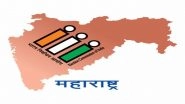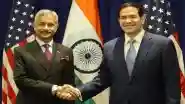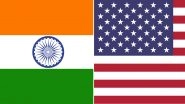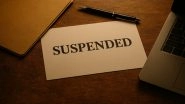Vienna, Sep 29 (AFP) Austria holds snap elections on Sunday after a corruption scandal in May prompted the spectacular collapse of the right-wing coalition government.
Nevertheless conservative former Chancellor Sebastian Kurz, 33, is expected to come out on top in the poll.
Here are some facts about the landlocked and wealthy Alpine country of 8.8 million people, a member of the European Union since 1995 but outside the NATO military alliance.
Modern Austria was born in 1918 from the ruins of World War I and the Austro-Hungarian empire, reduced to a small rump of what was once a vast empire which stretched from the Dalmatian coast to Russia.
Violence between far-right and left-wing radicals marked the interwar period before the advent of an "Austro-fascist" regime and then the annexation by Adolf Hitler of his native country into the Third Reich in 1938.
The country's tumultuous early decades meant that after WWII, a high premium was placed on reaching political sovereignty.
Just over a fifth of the population live in the capital Vienna, a city that has been judged the world's "most liveable" two years in a row in rankings compiled by the Economist Intelligence Unit.
The city owes its envious score to its comparatively low cost of living, abundant green spaces, rich culture and impressive architecture.
It is one of the most diverse parts of Austria, with 36 per cent of Viennese being born outside the country.
The population of the city - home to myriad international organisations -- is also growing fast, and projected to pass its pre-WWI peak of two million in 2028.
Vienna is a byword for classical music, home at one time to Mozart, Beethoven and Schubert. It was a cultural and intellectual hub in the late 19th and early 20th century.
Austria's more recent stars have included "Rock me Amadeus" singer Falco, techno twins Kruder and Dorfmeister, and bearded lady Conchita Wurst who won the 2014 Eurovision Song Contest.
But many Austrians have not seen "The Sound of Music", the 1965 musical film with Julie Andrews cavorting in Alpine meadows that still proves a huge tourist draw for Salzburg.
European integration and the EU's expansion into Austria's eastern neighbourhood have been good for the heavily export-dependent economy.
The country is home to firms that may not be household names but are global titans, like Glock (guns), KTM (motorbikes), Novomatic (gaming machines) - and the better-known Red Bull (energy drinks).
This has helped Austria retain a generous social security system, although companies have long complained about excessive red tape, taxes and non-wage labour costs.
In 1978, Austria rejected nuclear power in a referendum, even though it had a plant ready to start.
Some 25 per cent of Austria's agricultural land is used for organic produce, making it a European leader in the sector, while renewable energies account for 32.6 per cent of its consumption, almost double the EU average.
But it falls short in terms of greenhouse gas reduction. Between 1990 and 2017, Austria together with five others were the only EU members who saw their greenhouse gas emissions continue to increase, while in the whole union they have fallen by 22 per cent.
Over the same period, in the transportation sector alone these emissions increased by 71 per cent in Austria, according to Environment Ministry figures.
Austria excels in winter sports. Sixty per cent of the country is mountainous, and Austrians are glued to their televisions when their national athletes compete to cheer them.
One ski racer they won't be seeing anymore on the slopes, however, is Marcel Hirscher who announced his retirement this month after winning a record eighth consecutive overall World Cup title.
But ski lessons for schoolchildren haven't been obligatory since the 1990s, and some 60 per cent of the population say they have never skied. (AFP)
(The above story is verified and authored by Press Trust of India (PTI) staff. PTI, India’s premier news agency, employs more than 400 journalists and 500 stringers to cover almost every district and small town in India.. The views appearing in the above post do not reflect the opinions of LatestLY)













 Quickly
Quickly


